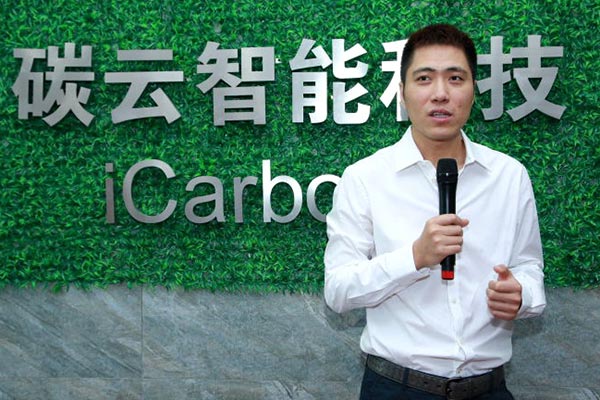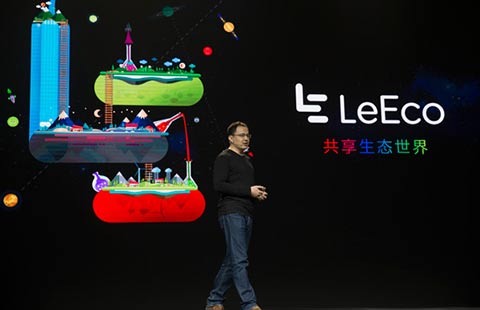Precision medicine company eyes US expansion
By Ma Si (China Daily) Updated: 2016-04-15 09:21
 |
|
WangJun, CEO and co-founder of iCarbonX.[Photo/China Daily] |
A big-data startup focusing on precision medicine, set up by former CEO of China's genome sequencing giant Beijing Genomics Institute, is planning to expand to the United States after Tencent Holdings Ltd led a nearly 1 billion yuan ($150 million) investment in the seven-month old company.
WangJun, CEO and co-founder of iCarbonX, said on Tuesday: "We will make strategic moves in the US and Europe this year, through either investments or acquisitions."
He declined to offer more details, only saying the startup is aiming to be a global firm and more overseas moves can be expected in the future.
The Shenzhen-based firm will offer precision medicine or personalized healthcare service by lever-aging artificial intelligence and big-data technology. It was established in October after Wang stepped down from BGI, the world's leading sequencer of genomes from human, animal and plant.
In January, iCarbonX set up its first overseas branch in Malta, a southern European island country whose healthcare system is ranked fifth globally by the World Health Organization.
The expansion plan came one day after iCarbonX announced it had completed series A round of financing, which was led by Ten-cent and valued the company at near $1 billion.
"Tencent is not only an investor but also will be a strategic partner," he said. "We are discussing cooperation on jointly developing new internet-enabled products, and leveraging Tencent's popular social networking tool WeChat to collect users' data and do marketing."
Other investors include Vcanbio Cell & Gene Engineering Corp, a leading Shanghai-listed cell and gene engineering firm, which will also partner with iCarbonX on genome sequencing resources and storage services.
Wang is one of the most pioneering genome experts in China. He was named by Nature magazine as one of the 10 people who mattered most in science in 2012 after he led BGI's efforts to acquire the California-based sequencing-technology company Complete Genomics.
The new cash will be used to collect data, speed up computing capability and build an artificial-intelligence-powered big-data analysis model, according to Wang.
"By sequencing and analyzing not just genomes, but behavior, imaging and environmental data of the same individual for a long time, we can know what interactions matter in causing genes to be expressed in a certain way," Wang said.
In the near term, the company's technology is likely to be first applied to the beauty industry, which is plagued by charismatic hucksters and fake science. Customers, for instance, will be able to undergo a skin test in iCarbonX stores and the company will then offer personalized advice on skin care by analyzing their personal data.
"We are considering opening the first store this year so that consumers can have first-hand experience of our personalized skincare service," Wang said.
China is bolstering the development of the precision medicine industry, hoping to leverage the cutting-edge technology to meet people's growing demand for personalized healthcare services in an aging society.
Chinese internet giants, such as Tencent, Baidu Inc and Alibaba Group Holding Ltd, are also branching into the digital healthcare market, betting it will be a big growth business in the future.
The global precision medicine market is expected to reach to $88 billion by 2022, according to HIT Consultant.
Zhang Yunlei, an analyst at Daton Securities Co, said currently, the domestic market is still in infancy but it is likely to grow at an annual rate of 20 percent in the next five years.
- Geely 'to launch new car brand'
- Nobel prize winners upbeat on China's innovation and growth
- Formula makers rise on new guidance
- Tech companies need to be serious about product innovation
- Canton Fair opens with more focus on SMEs
- Amazon unveils new Kindle at $370
- No limit for investment by foreign banks in Chinese interbank market
- China to play important role in IMF quota reform: IMF chief

















